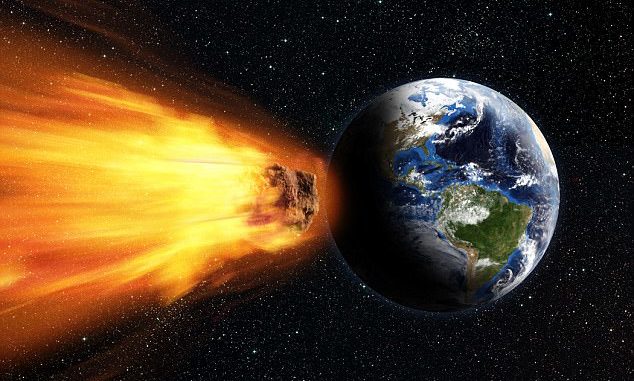
Throughout its 4.5-billion-year history, Earth has been repeatedly pummeled by space rocks that have caused anything from an innocuous splash in the ocean to species annihilation.
Researchers have discovered most of the asteroids that are about a kilometers in size, but are now on the hunt for those that are about 140m – as they could cause catastrophic damage.
Although nobody knows when the next big impact will occur, scientists have found themselves under pressure to predict – and intercept – its arrival.
‘Sooner or later we will get… a minor or major impact,’ said Rolf Densing, who heads the European Space Operations Centre (ESOC) in Darmstadt, ahead of International Asteroid Day on Friday.
It may not happen in our lifetime, he said, but ‘the risk that Earth will get hit in a devastating event one day is very high.’
For now, there is little we can do.
And yet, the first-ever mission to crash a probe into a small space rock to alter its trajectory suffered a major setback when European ministers declined in December to fund part of the project.
‘We are not ready to defend ourselves’ against an Earth-bound object, said Densing. ‘We have no active planetary defense measures.’
Hitherto relegated to the realms of science fiction, tactics could include nuking an incoming asteroid, using lasers to vaporize it, sending a space ‘tractor’ to drag it off course, or bumping it into a new direction.
But first, we need to be able to spot the threat.
Astrophysicists monitoring the risk classify objects into sizes ranging from a few millimeters to behemoths 10 kilometers (6.2 miles) across—the size of rock that wiped out non-avian dinosaurs some 65 million years ago.
END

Be the first to comment